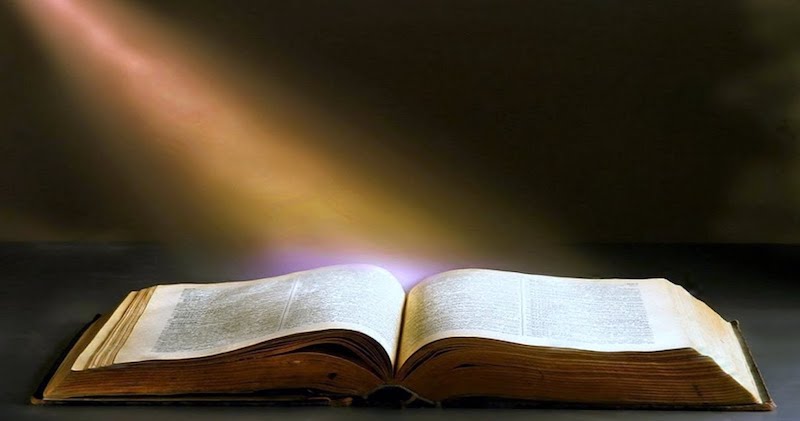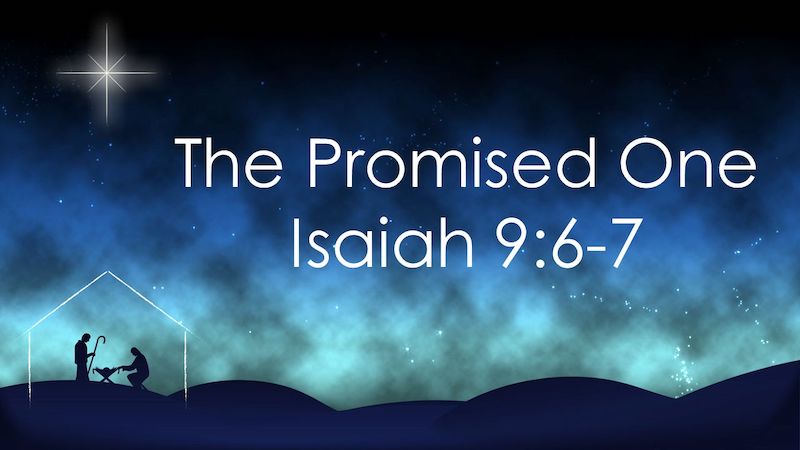I am frequently asked why the Jewish people do not believe in Yeshua as the Messiah. Often times, people will comment that if they (the Jewish people) are reading the Bible, even just the Old Testament, why are they unable to see and understand the clear prophecies which are written in the verses which they read?
There are many different reasons to this question and I will not address them all at this time. In this article I will focus on the current Torah Portion reading and use the verses within it to show how two people can read the same exact words but have two different perspectives and come to two different conclusions. You may be mentally stretched as you read this article but I encourage you to endure until the end. If you do, there will be a blessing for you and you will more deeply understand why so many Jewish people are kept from seeing the Messiah for who He really is.
An Encounter On Mount Sinai
Every well written story has a climax and within the biblical account of the Exodus there are actually several climactic events: the first Passover, the literal exodus from Egypt, the crossing of the Red Sea, and then the climax that tops them all, meeting God on Mount Sinai. We read the account of God arranging a meeting with the Israelites at Mount Sinai through His servant Moses in Exodus chapter nineteen:
The LORD also said to Moses, “Go to the people and consecrate them today and tomorrow, and let them wash their garments; and let them be ready for the third day, for on the third day the LORD will come down on Mount Sinai in the sight of all the people…” – Ex. 19:10-11
Although the LORD had shown His power to the Israelites through the ten plagues in Egypt and He had made His presence known to them through the pillar of cloud by day and the pillar of fire by night as they started on their journey to the Promised Land, the nation of Israel had not yet formally been introduced to the LORD. A day of introduction, however, was now set for the third day.
Moses obeyed the word of the LORD to him and prepared the people. When the third day finally came, Moses escorted the Israelites to the mountain to meet with God:
So it came about on the third day, when it was morning, that there were thunder and lightning flashes and a thick cloud upon the mountain and a very loud trumpet sound, so that all the people who were in the camp trembled. And Moses brought the people out of the camp to meet God, and they stood at the foot of the mountain. Now Mount Sinai was all in smoke because the LORD descended upon it in fire; and its smoke ascended like the smoke of a furnace, and the whole mountain quaked violently. When the sound of the trumpet grew louder and louder, Moses spoke and God answered him with thunder. The LORD came down on Mount Sinai, to the top of the mountain; and the LORD called Moses to the top of the mountain, and Moses went up. – Ex. 19:16-20
The people were brought to the foot of the mountain upon which God descended. The Israelites heard the loud sound of the trumpet (shofar) and they saw the effects of God having descended on the mountain.
Did God Really Descend On Mount Sinai?
We are given a descriptive picture of the thunder, the lightning, the fire, and the smoke that accompanied the LORD when He descended upon the mountain and we are also told that the whole mountain “quaked violently” as a result of God’s presence there. It most have been an awesome sight to behold, however, was God really on top of the mountain or was it just a sound and light show with some special effects to entertain the people? Did God really descend on Mount Sinai?
The question of whether or not God literally descended on Mount Sinai is important because it sets a standard for how we read and interpret the rest of the Bible, especially in regard to how God interacts with humanity. As I have mentioned in some of my previous teachings, rabbinic Judaism (or Orthodox Judaism) teaches that God is an incorporeal being, meaning that He does not have a body and cannot take on human characteristics. In order to protect the incorporeal nature of God, rabbinic Judaism interprets the Scriptures within a framework consistent with this understanding.

Interpreting God’s Word
One way that rabbinic Judaism protects the deity of God from making it appear that God could have a corporeal identity is through commentaries and translations of the Bible. One of the most famous Jewish translations of the Torah (the first five books of the Bible) is an Aramaic translation called Onkelos. We see a clear example in the Onkelos translation of how rabbinic Judaism attempts to protect the incorporeal identity of God in Exodus 19:18, which reads as follows:
Now the mountain of Sinai was all smoking because the Lord was revealed on it in fire. The smoke rose like the smoke of a furnace. The entire mountain trembled very much. – Ex. 19:18 (translation Onkelos)
Instead of directly translating the Hebrew word ירד – Yarad as go down or descend, which is the literal meaning of the word, the Onkelos translation above uses the word “revealed.” If God was only “revealed” on the mountain and did not actually “descend” on the mountain, then the question of God being able to reveal Himself in bodily form is muted.
Rabbinic Judaism does not try to hide this change of meaning from the original Hebrew text. They are in fact proud of the fact that they are protecting God’s honor. The following is a quote from one of the commentaries which accompany the Onkelos translation in regard to the change of wording in verse eighteen:
WAS REVEALED ON IT. Onkelos avoids the biblical anthropomorphism “descended upon it.” – Israel Drain & Stanley M. Wagner. Targum Onkelos, Exodus. Gefen Publishing. 2011. p.121
Anthropomorphism is a fancy word which means to have human characteristics or behaviors. Onkelos and other rabbinic Jewish sources are constantly trying to eradicate the appearance of God as possessing human characteristics. Again, It is worth pointing out that they openly admit to doing this and do not try to hide it, however, the danger of this interpretive translation method is that it deviates from a literal reading and understanding of the text.
The biblical text in Exodus chapter nineteen states that on that third day God “descended” on Mount Sinai and made Himself known to Moses and the Israelites in a unique manner. It is good to accept the biblical text as it has been given to us because it is by the means of an accurate and literal translation of the Bible that we can put together a more definitive understanding of who God is, the best that we are able. This becomes even more important as we look at the corresponding verses in the prophets to this week’s Torah Portion reading.
The Reading From Isaiah
The reading from the prophets for this week is Isaiah 6:1-7:6 and 9:6-7 (In the Hebrew manuscript, Isaiah 9:6-7 is numbered as 9:5-6). The chapters and verses chosen by the rabbis from the book of Isaiah for this week were specifically chosen because of the supernatural revelation of God, a theophany, which we read about in Exodus nineteen. The reading from Isaiah begins in chapter six where Isaiah had a vision of God and saw God:
In the year of King Uzziah’s death I saw the Lord sitting on a throne, lofty and exalted, with the train of His robe filling the temple. – Isaiah 6:1
To soften the impact and to protect God’s honor from any type of anthropomorphism, the Onkelos translation (which is taken from Targum to the Prophets) reads as follows, “…I saw the glory of the Lord…”. Instead of translating directly from the Hebrew ואראה את אדוני – Ve’ehreh Et Adonai – “…and I saw the Lord…” as quoted in the above verse, the Onkelos translation adds the word “glory” to infer that Isaiah only saw the glory of the Lord and did not literally see the Lord Himself.
Orthodox Judaism not only tries to minimize any physical appearance or behavior of God but it also seeks to dispel the notion that man can see God, teaching that He is an incorporeal entity. Therefore, the Onkelos translation of Isaiah 6:1 states that Isaiah only saw the glory of the Lord and not the Lord Himself, which goes against the original Hebrew text.
An Orthodox Jewish Translation
The final verses from the book of Isaiah for this week’s reading from the prophets contain the famous Messianic prophecy about the child who would be born (Isaiah 9:6-7). The Onkelos translation of the child who is spoken of in Isaiah 9:6-7 is so far removed from the original text that I am embarrassed to even share it but I must in order to make this point clear. The following is the translation of Isaiah 9:6-7 from the Onkelos series:
The prophet said to the house of David, a child will be born to us, a son will be given to us. He will accept the Torah and keep it. His name shall be called Messiah from before the wonderful counselor, the mighty God, who exists forever. In his days peace will increase upon us. Those who keep the Torah will be very proud, and those who seek peace for the throne of David and his kingdom will not {see its} end. {It will be} established and built with law and merit from now and forever. This will be done by the memra {word or wisdom} of the Lord of Hosts. – Isaiah 9:5-6 (6-7) – Israel Drain & Stanley M. Wagner. Targum Onkelos, Exodus. Gefen Publishing. 2011. p.295
This is a very loose translation that is actually more like a paraphrase with many added words which totally dilutes the original text. Why would the translator go to such great lengths to change the original text of these two verses?
One does not have to try too hard to figure out the reason for this great change in the text. In the introduction to these verses in Onkelos, the following explanation is given:
Of special significance is the targumist’s (translator’s) interpretation of verses 9:5 and 6 (or 9:6-7), verses that many Christians assumed referred to Jesus. Just like Rashi and later Jewish commentators, the Isaiah targumist understood the passage to speak of the son of King Achaz, who did not follow God’s commands. He would have a son whom God, the “wonderful counselor,” will call “Messiah,” meaning the “anointed one,” and signifying that he will rule after Achaz. This child will keep the laws of the Torah and bring peace to the land. – Israel Drain & Stanley M. Wagner. Targum Onkelos, Exodus. Gefen Publishing. 2011. p.294
As is explained above, because of the assumption by followers of Yeshua (Jesus) that this prophecy in Isaiah chapter nine refers to Yeshua who would be born, Jewish commentators were sure to present a different narrative of who this child would be, the son of Ahaz (Achaz) who is mentioned in Isaiah chapter seven. For this reason, they go to great lengths to understand Isaiah 9:6-7 (or 9:5-6) in a manner which does not do proper justice to the text.
A Child Will Be Born To Us
Although the majority of Jewish scholars try to force an understanding of Isaiah 9:6-7 as referring to the son of Ahaz, there are some who do not. The following commentary on Isaiah 9:6-7 (or 9:5-6) is taken from The Jewish Study Bible:
The verbs are in the past tense. Some interpreters view them as examples of the “prophetic past,” which predicts future events using the past tense because they are as good as done. Thus it is not clear whether the Davidic king whose birth and rule are described (vv.5-6) has already been born (if the verbs are regular past tense) or will be born in the future (prophetic past). If the former, the verse probably refers to Ahaz’s son Hezekiah, as many modern and rabbinic commentators believe (though other possibilities exist depending on the date of the passage). Most later readers (both Jewish and Christian) understood the passage to describe an ideal future Davidic ruler, i.e., the Messiah. – Berlin, Adele and Brettler, Marc Ziv. The Jewish Study Bible. 2nd edition, OUP, NY. 2014. P.784
The commentators quoted above take a more neutral position as they acknowledge that the verses are speaking of a child who would rule on the throne of David but do not clarify whether the prophecy was simply referring to an ordinary king (Hezekiah) or quite possibly a future ruler, the Messiah. I believe the text speaks for itself as we read a literal translation below.
A Literal Translation
There is absolutely no reason to alter and change the meaning of the original text of the Hebrew Bible or to try to force one’s opinion on it. An accurate translation of the original text should be taken at face value and accepted for how it reads. The following translation is taken from the New American Standard Bible (NASB):
For a child will be born to us, a son will be given to us; and the government will rest on His shoulders; and His name will be called Wonderful Counselor, Mighty God, Eternal Father, Prince of Peace. There will be no end to the increase of His government or of peace, on the throne of David and over his kingdom, to establish it and to uphold it with justice and righteousness from then on and forevermore. The zeal of the LORD of hosts will accomplish this. – Isaiah 9:6-7
The child spoken of in these verses bears the very name and characteristics of God Himself. This child is also said to rule on the throne of David.

The text in Isaiah 9:6-7 (or 9:5-6) clearly reveals a Messiah figure who would bear the very nature of God and rule on the throne of David. We see a direct fulfillment of this prophecy in the New Testament:
The angel said to her, “Do not be afraid, Mary; for you have found favor with God. And behold, you will conceive in your womb and bear a son, and you shall name Him Yeshua. He will be great and will be called the Son of the Most High; and the Lord God will give Him the throne of His father David; and He will reign over the house of Jacob forever, and His kingdom will have no end.” – Luke 1:30-33
The miraculous birth of the Messiah through the virgin Mary is God’s provision to humankind of God coming down to earth in the flesh and giving the world a King whose kingdom would have no end.
When God Came Down
The Bible is God’s word which records for us the history of God’s interaction with humanity from the beginning up until and including the revelation of the Messiah in the New Testament. When we take God’s word literally, we read how God descended upon Mount Sinai in order to introduce Himself to the Israelites in Exodus 19 and we also read in Isaiah 9:6-7 (or 9:5-6) that a divine child would be born and that He would establish everlasting peace, justice, and righteousness. God descended on Mount Sinai, God the Son came down to the earth and was born in Bethlehem, and this same Son, Yeshua the Messiah, will come down once more to reign forever and ever!
Shabbat Shalom!
If you enjoyed reading this article, share it today with friends! We also invite you to sign up for our weekly Torah Portion commentary on the sidebar to the right.
Help keep our weekly commentaries free and available to all. Click here to donate today:
*All Scripture take from NASB Copyright © 1960, 1962, 1963, 1968, 1971, 1972, 1973, 1975, 1977, 1995 by The Lockman Foundation
**The Hebrew name “Yeshua” is used in the biblical quotations in place of the English name “Jesus” to give emphasis to the meaning of this name, salvation. The word “Messiah” is also used in place of the word “Christ” to bring clarity to the office of Yeshua.


